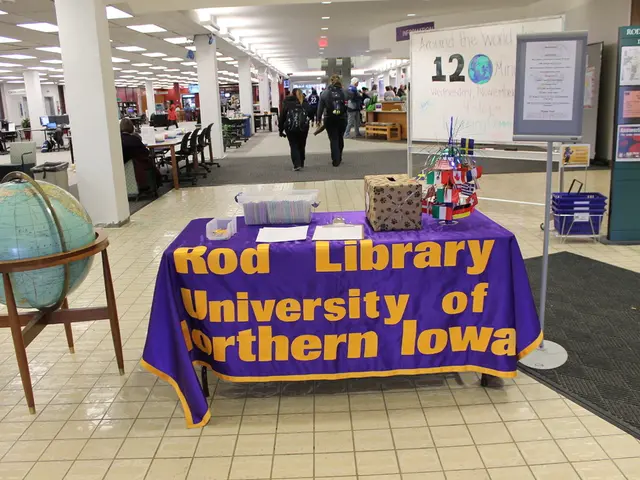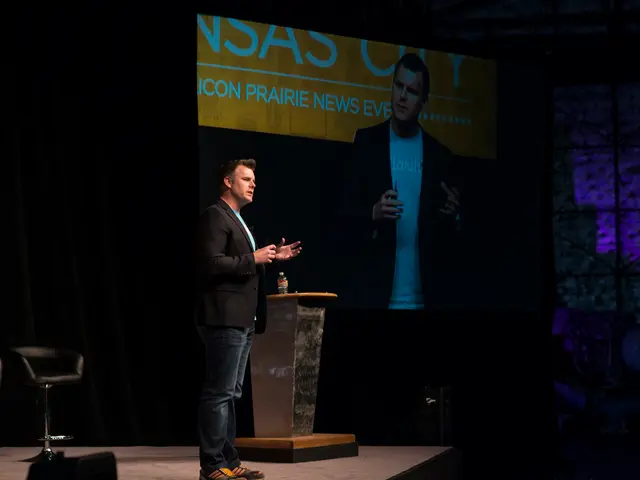Discussion by ex-head of U.S.-Korea Trade Council on Immigration and Customs Enforcement (ICE) operation at Georgia factory
In the heart of southern Georgia, a major construction project is underway - the U.S. Hyundai plant. However, recent events have stirred up a storm, causing ripples across the business community, particularly in South Korea.
Tami Overby, an international business consultant with a rich background in U.S.-Korea relations, sheds light on the situation. The U.S. Attorney in southern Georgia has stated that the operation was to prevent employers from gaining an unfair advantage by hiring unauthorized workers. Yet, the national authority involved, as referred to by Overby, is the U.S. Department of Labor.
Overby did not express a clear opinion on whether the raid was about hiring unauthorized workers or a message to foreign companies. However, the incident has raised questions about the U.S.'s stance towards foreign investment. One of Overby's Korean friends commented, "It sounds like the U.S. wants our money but doesn't want us."
South Korean investors are among the largest in the U.S. currently, with South Korean companies pledging to spend tens of billions of dollars in the U.S. in sectors like shipbuilding, semiconductors, and batteries - sectors the U.S. has advocated for. The Hyundai and Kia plants in Georgia and Alabama aim to hire local American citizens once the plants are up and running, as it is less expensive.
The U.S. is experiencing labor shortages in construction, particularly for advanced manufacturing facilities. The lack of high-skilled talent to build these plants is a concern, with Overby noting, "It's common for Americans to oversee the building of facilities in other countries, such as Korea, when the necessary technology and know-how are not available in the U.S."
Overby believes that sending foreign workers to oversee the cutting-edge aspects of advanced manufacturing facilities is understandable given the U.S.'s lack of technology in these areas. However, the videos and photos of Koreans being gathered up and treated like criminals are playing all over Asia, causing discussions in boardrooms about whether the U.S. is a desirable place to invest and build.
The Hyundai plant in Georgia is a significant investment by South Korean companies, and the implications of the raid extend beyond the construction site. As the situation unfolds, it remains to be seen how this incident will impact future foreign investments in the U.S. and the U.S.-South Korea business relationship.
Tami Overby, with her extensive experience in U.S.-Korea business relations, will continue to monitor the situation closely. As the dust settles, her insights will undoubtedly provide valuable perspectives on the evolving landscape of U.S.-South Korea business ties.
Read also:
- House Infernos: Deadly Hazards Surpassing the Flames
- Aspergillosis: Recognizing Symptoms, Treatment Methods, and Knowing When Medical Attention is Required
- Accident at Rodalben Results in Injuries; Geoskop Area near Kusel Affected After Stormy Weather
- "Intel Executive Praises Arrow (Lake) Notebook as Remarkable, Offers Insights into Intel's Future Processors in 2025"








